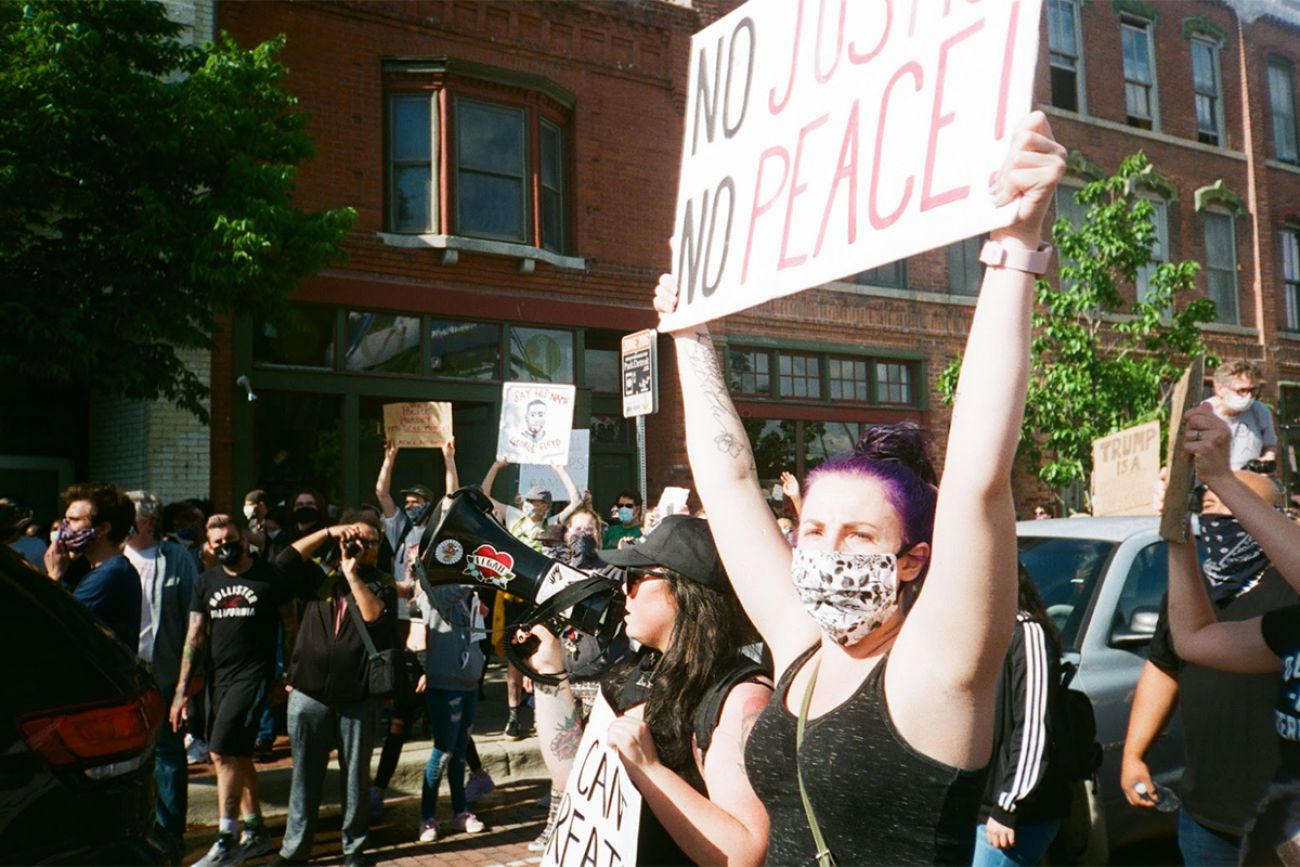How to be an ally in Michigan protests against injustice, police brutality

After a week of protests in Detroit and even longer across the nation, marches continue in solidarity of George Floyd’s death amid outcries against police brutality and white supremacist systems.
But narratives continue to shift as public opinion varies widely on the proper way to protest and who should be involved. Local activists say participating in protests, conducting careful listening and advocating for public policy change is the best way to be an ally to blacks now.
Merriam-Webster Dictionary defines ally, a noun, as “one that is associated with another as a helper: a person or group that provides assistance and support in an ongoing effort, activity, or struggle.”
Early protests in Detroit were held downtown and predominantly represented Michigan’s white residents. As the days of protests wore on, more people of color, Millennial, Gen X and Gen Z populations not just joined, but took charge, like 16-year-old Stefan Perez. The locations shifted from downtown to Detroit’s east and northwest neighborhoods as Mayor Mike Duggan instituted an 8 p.m. citywide curfew. While most demonstrations have been peaceful, arrests, like that of local organizer Tristan Taylor, and minor property damage have followed.
JoAnna Underwood, who was elected to the Detroit Charter Commission in 2018, said she and Meeko Williams were organizers of Detroit’s first protest regarding George Floyd on May 29. Both activists have worked on the ground on some of the greatest social justice issues challenging Detroiters today, from mass school closures to water shutoffs and now police brutality.
The first thing an ally can do is show up, Underwood said.
Underwood and Williams said they shared information about Detroit protests within the city first, then with their statewide network.
“What happened, to our surprise, is white people showed up,” Underwood said. “I’ve been doing this a long time and I have never seen Caucasian people this angry about black life.”
Underwood, 37, said in the past week she’s participated in protests in Detroit, Minnesota, Indiana and Ohio. She calls herself a political activist, seeking and working toward long-term policy change.
“The whole point of protesting is not to let people yell and scream, it’s to disrupt business as usual so it will lead to public policy change,” Underwood said.
She encourages allies to think about policy changes that would ultimately defund police systems. That includes dismantling the police union and using the police pension to pay for negligence lawsuits instead of taxpayer dollars.
Carolyn Baker, a longtime Detroit activist, said an ally should learn about the historical context of a system when trying to institute policy change. Baker, 40, said for an ally to hold a system accountable, you have to know why and how it exists.
“Be careful listening to the news and the propaganda that is put out there,” she said. “Get a sense of what people really feel.”
Baker comes from a family of Detroit activists. Her father, General Gordon Baker Jr., was the founder of Dodge Revolutionary Union Movement and the League of Revolutionary Black Workers. Her mother, Marian Kramer, is a civil rights, poverty, and labor organizer. The family founded the General Baker Institute, an educational nonprofit in Detroit, after Baker’s father died in 2014.

Baker said staying aware and listening are other aspects of being a good ally. She’s attended three protests in Detroit so far that have ranged from hundreds of supporters to thousands. Baker said any ally should learn to identify who is in the crowd.
“You’re going to have people out there for the cause and people just showing up because they don’t know what’s going on,” Baker said. “You’ll have anarchist behavior that will burn everything up with no solution to rebuild and people will be there to distract you from your agenda … no matter what type of demonstration you have you’re going to have all of them there.”
Williams, 35, is known for his work with local organizations like Hydrate Detroit. He says an ally needs to be respectful.
“The first thing you need to do is respect the city of Detroit, respect Black people, Black culture, and Black struggle,” Williams said. “And also, respect the achievement that has been made here.”
Williams also said an ally should use their individual platform, or network, to share information. Even using social media campaigns like #BlackOutTuesday can help share a collective voice around issues right now with wide audiences.
See what new members are saying about why they donated to Bridge Michigan:
- “In order for this information to be accurate and unbiased it must be underwritten by its readers, not by special interests.” - Larry S.
- “Not many other media sources report on the topics Bridge does.” - Susan B.
- “Your journalism is outstanding and rare these days.” - Mark S.
If you want to ensure the future of nonpartisan, nonprofit Michigan journalism, please become a member today. You, too, will be asked why you donated and maybe we'll feature your quote next time!




